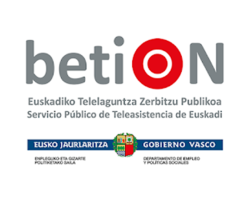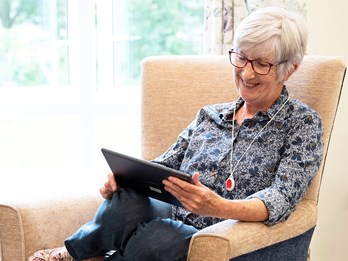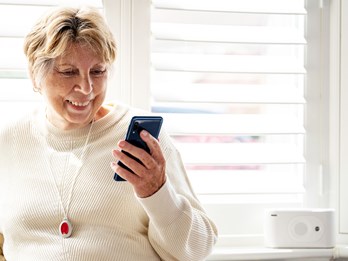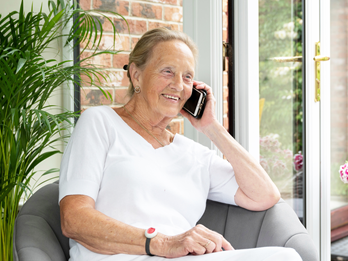The situation of particular vulnerability in which these people find themselves requires progress in the search for global responses and solutions, with the cross-cutting involvement of all areas, to meet their needs. In particular, from the social and health fields, promoting new methodologies and strategies for intervention and coordination of the agents involved.
Comprehensive Alzheimer’s Plan. State Dementia Group
The Challenge
It is estimated that more than 800,000 people have dementia in Spain. When combined with the number of people caring for them, the condition affects millions of people. Given that age is one of the risk factors associated with dementia, and that the Spanish population is ageing, how can telecare services be used to support the needs of people with dementia and those who care for them?
A pilot study was undertaken by betiON, the Basque Public Telecare Service, to explore how the processes and features of its service could be adapted to better suit the specific needs of people with dementia/cognitive impairment. The study aimed to:
- Determine a set of criteria to identify the people the service could help the most
- Train telecare service professionals to improve their skills in communicating with people who have cognitive impairment
- Establish effective communication channels, collaboration and referral between betiON, Alzheimer’s Associations, people living with dementia and their families in the three historical territories of the Basque Country (AFAs)
- Adapting existing telecare services (and the respective programmes) to best meet the needs of affected individuals
- Extend the time that people with cognitive impairment can remain living at home, increasing their wellbeing and giving peace of mind to their families
- Measure the satisfaction of people with cognitive impairment and their families receiving care from the service
- Ensure we have met the goals of the pilot to the satisfaction of the Basque Government and the AFAs
What We Did
The pilot project to adapt betiON’s telecare service was undertaken in consultation and collaboration with the Alzheimer’s Associations of the three historical territories of the Basque Country: AFA Araba, AFA Gipuzkoa and AFA Bizkaia. It was coordinated by co-creation company H-ENEA, and supported by Iñaki Artaza, geriatrician and president of the Ageing and Health Foundation of the Spanish Society of Geriatrics and Gerontology.
In June 2019, the development and definition of the pilot began with 17 participating families. The implementation of the service adaptations took place in December 2019 and in June 2020, the control period ended and the following service adaptations were introduced:
- Definition of a distinct alert system adapted to people with dementia and their carers
- Establishment of a familiarisation system for training in the use of telecare
- Development of posters to promote the use of telecare
- Adaptation to the sounds emitted by the telecare home unit
- Modifications to the workflow for home visits by the integration coordination department
- Adaptations to the process undertaken on home visits by technical staff
- Changes to the processes followed by the care centre
Results
The following results have been obtained through the objective indicators, together with other data that help to determine the acceptability and feasibility of the adaptation of the service:
- Collaboration with experts: Collaboration with other entities in the development of the pilot has worked well, providing extensive knowledge and is an example of institutional collaboration with the common objective of providing more comprehensive and dignified care to those affected and their families. Despite having concluded this phase of the pilot, this collaboration continues and is reinforced through various communication channels.
- Participant Satisfaction Surveys: The most highly valued aspect was the attention and follow-up provided by the service, both by telephone and in person, as well as the security devices installed. Participants reported the MyAmie personal trigger being easy to use. Families confirmed that the service gave them great reassurance and peace of mind. 100% of people responding the other survey would recommend the service to other people in a similar situation.
- Participants’ profile: The service has been identified as being of most help to people in the initial stages of cognitive impairment living alone, and people at any stage of cognitive impairment living with relatives who are able to help care for them.
- Service efficiency and resources invested: 76% of the people participating in the pilot enjoy the additional security provided by the service; therefore, once the need has been assessed and the impact on the families’ peace of mind is known, it has been proposed that telecare is offered automatically to people living alone with cognitive impairment. This would be supported by high frequency follow-ups, due to the rapid nature of change associated with dementia.




